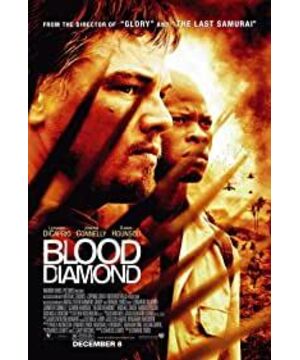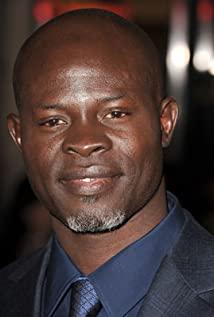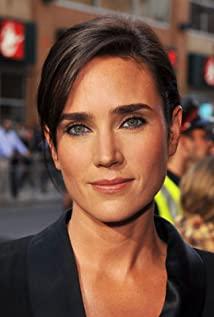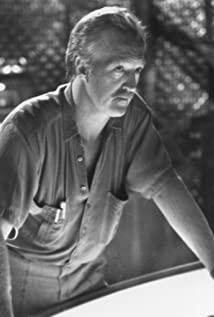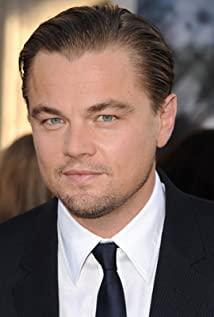I was watching the film director Edward Zwick's "Blood Diamond." When I saw Danny, played by DiCaprio, walking the black Solomon through the virgin jungles of Sierra Leone in Africa, looking for the diamond that might bring every protagonist out of this barbaric world full of killings. At that time, my thoughts drifted far to Vienna in 1987, at a speech by a poet. That was also a poet who once lived in a world full of killing and fear. When he finally escaped from the purges of totalitarianism and came to charming Vienna, he received the most grand reception. But the poet still can’t forget those of his kind and friends who are still living in the shadow of danger. He said that when we gather here, in this charming, brightly lit room, let us pause for a moment and think about the natural It's someone who can't come to hit this room. For example, let us think of Turkish migrant workers who wander in the streets of West Germany, who are unfamiliar or envious of the reality around them. Or, let us think of those Vietnamese boat people who have drifted on the high seas or have settled in the Australian interior. Let us think of the smuggled Mexican workers who crossed the valleys of Southern California and escaped the border patrol to enter the territory of the United States. Or, let us think of those Pakistanis who arrived in Kuwait or Saudi Arabia by boat, and they took on the humble jobs that the oil-rich locals did not want to do. Let us think of the Ethiopians who escaped famine and walked across the desert towards Somalia. He said sadly that their existence constitutes the reality that we have left out of civilization.
Director Edward Zwick seems to be particularly fond of the cruel truths that have been left behind. "Autumn Legend" and "The Last Samurai" are both spectacular, large-scale, and epic films. In this filming of "Blood Diamond", he set his sights on the vast African land. Cruel subjects such as civil war, slavery, diamond shady, and child soldiers were all integrated into the back of his heavy camera. . However, while I was amazed by Zwick's consistent great work, I had already unkindly guessed what he wanted to express behind this film. In fact, looking at the background information of this film, Sierra Leone is located in West Africa and is a well-known diamond exporter. Sierra Leone’s domestic rebellion has continued for many years, all for the purpose of controlling the country’s diamond exports and making high profits from it. The civil strife in the background of this film lasted for 11 years, and it was not completely quelled until September 2002, which brought endless suffering to the local people. In fact, there has been a saying in the African continent for a long time: "If You want long life, never touch the diamond!" (If you want to have a long life, don't touch the diamond), diamonds seem to be a level thing with drugs. In this film, in my opinion, Zwick mainly wants to express his extraordinary concern for a disadvantaged ethnic group. Perhaps he thinks that our neglect of countries living outside civilization is actually a kind of guilt. . In this sense, he is condemning the progress of civilization, which actually means abandonment of barbarism. But this so-called abandonment of barbarism does not mean that our world has been lifted out of poverty and that everyone lives in abundance. It's that we turn a blind eye to areas where wars are spreading and poverty is rampant, or we simply close our eyes as if they don't exist.
If our above analysis of the original intention of the director is basically correct, then I have to admit that Zwick still attracts our attention when dealing with this sensitive relationship. In the film, the white Danny, an arms dealer who relies on illegal diamond transactions for huge profits, wants to seize diamonds and escape from Africa, which he hates so much; while the black Solomon also needs the diamond to save his son and family; in addition, an American The female journalist Mandy's desire to expose the dark side of the diamond trade was her sole purpose of traveling all the way to Sierra Leone. This is a very interesting combination. Among them, the female journalist Mandy is undoubtedly a symbol of civilization and idealism. The camera in her hand reveals the director's thoughts. She is the true witness of the film and at the same time she is a saving force. It must be reminded that this is the salvation of barbarism by civilization, the salvation of non-Western countries by the West, and the salvation of blacks by whites. If this interesting combination is included in the language of post-colonialism, it will clearly show the consistent ideological strategy of colonial rule. Of course, if the film only uses Mandy’s wishful thinking to send black Solomon into the civilized Western world to promote the salvation of the West to the non-Western world, the thinness of this redemption strategy and the clumsy tricks will not earn the audience. Tears, so this film still needs a protagonist-Danny.
Danny, played by DiCaprio, is a white man who grew up in Africa. He lives on illegal arms and diamond transactions. His biggest wish is to leave this cruel world and return to the civilized West. So when he first learned that the black Solomon had a huge diamond in his hands, his usual greed was exposed. I have no doubt that his original motive was to get the diamond through Solomon, and then deal with Solomon's escape mercilessly. In fact, he thought this way, but he met Mandy and fell in love with her-this is the model of Hollywood movies, although it is clichéd, it is still used by every director countless times. I understand the director's meaning, Zwick wants Mandy's love to save Danny's greed, turn his brutality into a tender force, and obtain self-salvation. Then let this white man die in order to save the black Solomon from this backward and barbaric world, thereby sublimating and consecrating this redemption. Although this circuitous redemption strategy is a bit stiff, when Danny is best injured and dying, remember to call Mandy in the United States and ask her to help the Solomon family. I believe most The audience can feel moved.
At the end of the film, with the help of the white female reporter Mandy, Solomon won a family reunion with the blood of countless people, and lived happily in the civilized world. This ending undoubtedly has the logic of Hollywood movies, but I think this happy ending is just the director’s wishful thinking, or the savior’s magnificent fantasies about the rescued. This model of white people redeeming black people from the sea of suffering is the fatal part of this movie. Mr. Lu Xun once said in a speech, what should Nara do after she leaves? The black Solomon is the black Nora. He escaped from the African world full of killing and war and came to a civilized world. The story does not end here. We should ask, what should the black Nora do? They seem to have been redeemed, but this redemption also requires a price. In the white world, suspicion, contempt, and discrimination against black skin undoubtedly still exist. And more importantly, can they blend into the so-called civilized world? Maybe, when they wake up from the middle of the night time and time again, the black Nora will remember their kind who are still in the flames of war?
Siyu 2007-1-14 Book in the Broken Void
View more about Blood Diamond reviews


